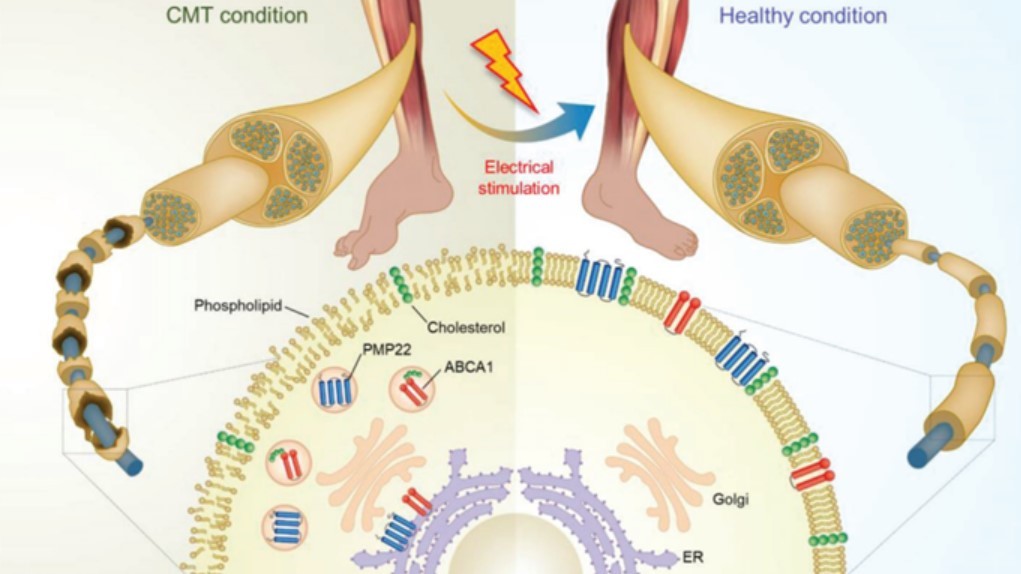Scientists develop world's 1st therapy for Charcot-Marie-Tooth disease
By Kan Hyeong-wooPublished : Aug. 30, 2022 - 14:47

Researchers have developed the world’s first electroceutical technology that can be used to treat the Charcot-Marie-Tooth disease, the Daegu Gyeongbuk Institute of Science and Technology said Tuesday.
CMT disease is a group of inherited disorders that cause nerve damage. Its common symptoms are weakness in the legs and feet, loss of muscle bulk and curled toes. Although CMT is one of the most commonly inherited neurological disorders -- found in about one in 3,000 people -- there are no approved treatments for it yet.
A team of researchers led by Kim Min-seok, a new biology professor at DGIST, discovered a specific electrical stimulation condition that can recreate myelin -- an insulating and protective layer that forms around nerves -- in a mouse model.
The researchers found that the electrical stimulation improved the abnormalities in the distribution of protein and cholesterol in the myelin membrane. After three weeks of electrical stimulation treatment, the mouse’s movement abilities, which declined due to CMT, were enhanced as the mouse’s damaged myelin was restored.
“The essence of this study is that it confirmed the possibility of treating incurable peripheral neuropathy, which has no therapy, with electroceutical technology for the first time,” said Kim. “We hope that the research results will expand to the development of electroceuticals that can treat 2.8 million patients suffering from Charcot-Marie-Tooth disease.”
CMT disease is a group of inherited disorders that cause nerve damage. Its common symptoms are weakness in the legs and feet, loss of muscle bulk and curled toes. Although CMT is one of the most commonly inherited neurological disorders -- found in about one in 3,000 people -- there are no approved treatments for it yet.
A team of researchers led by Kim Min-seok, a new biology professor at DGIST, discovered a specific electrical stimulation condition that can recreate myelin -- an insulating and protective layer that forms around nerves -- in a mouse model.
The researchers found that the electrical stimulation improved the abnormalities in the distribution of protein and cholesterol in the myelin membrane. After three weeks of electrical stimulation treatment, the mouse’s movement abilities, which declined due to CMT, were enhanced as the mouse’s damaged myelin was restored.
“The essence of this study is that it confirmed the possibility of treating incurable peripheral neuropathy, which has no therapy, with electroceutical technology for the first time,” said Kim. “We hope that the research results will expand to the development of electroceuticals that can treat 2.8 million patients suffering from Charcot-Marie-Tooth disease.”



















![[Today’s K-pop] Treasure to publish magazine for debut anniversary](http://res.heraldm.com/phpwas/restmb_idxmake.php?idx=642&simg=/content/image/2024/07/26/20240726050551_0.jpg&u=)